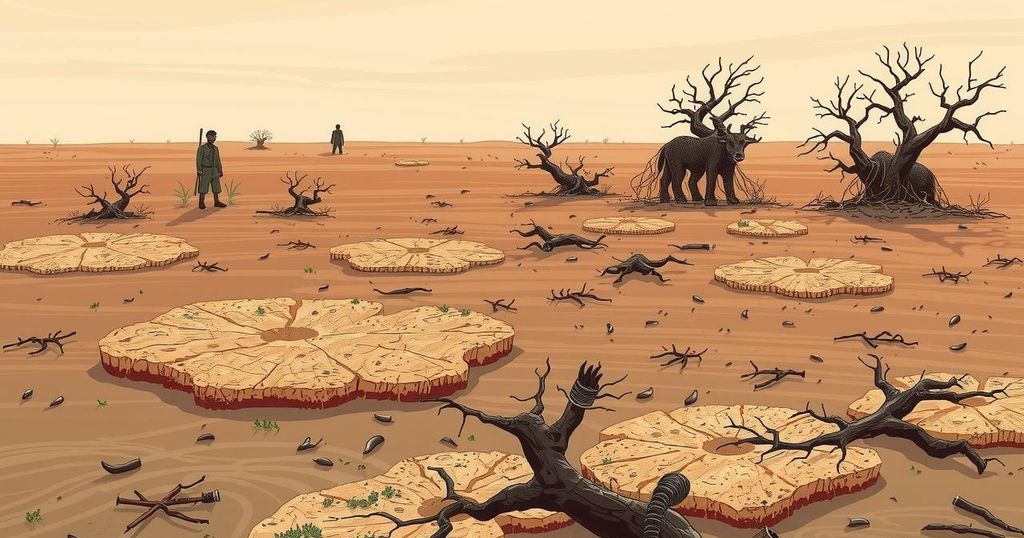Canadian Foodgrains Bank leaders have assessed the dire humanitarian crisis in South Sudan. They observed severe consequences of war and USAID funding cuts, which hampers food security and essential services. Approximately 26 million people in Sudan face hunger, and many have fled to South Sudan. The Canadian Government recently announced a $4 million investment to aid humanitarian efforts in Sudan, as part of ongoing initiatives to support affected communities.
Last week, members of the Canadian Foodgrains Bank visited South Sudan to assess the ongoing humanitarian crisis, deemed one of the worst globally. Executive Director Andy Harrington and Senior Humanitarian Manager Stefan Epp-Koop witnessed firsthand the severe devastation caused by war, famine, and significant funding cuts affecting relief efforts. Notably, recent funding reductions from the U.S. Agency for International Development (USAID) have severely impacted lifesaving food, water, medical care, and shelter for the affected populations during this critical time.
Historically, prior to 2011, Sudan and South Sudan were unified until the latter gained independence after prolonged civil conflicts. The current conflict in Sudan escalated two years ago in April 2023, described by Epp-Koop as a “vicious civil war” that has adversely affected the civilian populace. Presently, approximately 26 million individuals in Sudan are grappling with hunger while 11 million are displaced. Additionally, around one million refugees have fled to South Sudan in search of safety.
Epp-Koop expressed the harrowing conditions faced by those affected, noting, “People are fleeing for their lives, fleeing so that their kids aren’t forced to join the army, fleeing often on foot with almost nothing.” Many have abandoned their homes, seeking a chance to survive in a more secure environment. The dire situation sees civilians, especially children, suffering from malnutrition and lacking essential resources as conflict rages.
The cuts from USAID have prompted the closure of healthcare facilities and nutrition treatment centers, with numerous services for refugees experiencing drastic reductions. Education for tens of thousands of children has also been jeopardized due to insufficient funding. Epp-Koop articulated the gravity of this situation, asserting that the funding reductions, which represent a minor fraction of the American government’s budget, lead to tragic consequences: “We are looking at thousands, tens of thousands of lives being lost as a result of this decision for essentially a rounding error in the budget.”
The Canadian Foodgrains Bank is actively participating in the humanitarian response with several initiatives aimed at providing vital food assistance to those in dire need. Recently, they announced a $4 million commitment from the Canadian Government to support humanitarian efforts in Sudan, aimed at addressing urgent needs in the hardest-hit areas.
Epp-Koop emphasized the dual approach of the Canadian Foodgrains Bank, stating, “The Canadian Foodgrains Bank is providing both that immediate assistance, making sure that people have what they need today but also helping people imagine and achieve a better future so that they don’t need food assistance in the future.”
The recent visit by the Canadian Foodgrains Bank leaders to South Sudan has highlighted the grave humanitarian crisis precipitated by war and funding cuts, particularly affecting civilians. With millions suffering from hunger and displacement, the urgent need for international assistance remains critical. The commitment of $4 million by the Canadian Government signifies a crucial step towards addressing these humanitarian needs, while ongoing efforts aim to ensure both immediate relief and sustainable future solutions for affected communities.
Original Source: discoverwestman.com






